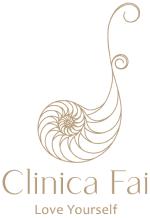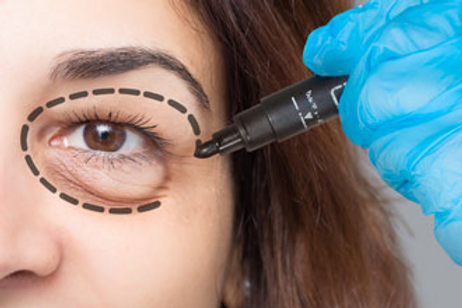What is an Oculoplasty procedure?
In a nutshell, an oculoplastic procedure involves the eyebrows, eyelids, bone cavity around the eye, cheeks, forehead, or tear generating system (lacrimal tear system). For many patients, Oculoplasty restores the function of the eye and face, thereby improving their quality of life. Oculoplastic surgeons receive specialized training so that even seemingly simple plastic surgery is done with the same precision as other ophthalmic procedures.


What are the main Oculoplastic procedures?
Oculoplastic procedures are a combination between plastic surgery and reconstructive procedures. Standard Oculoplastic procedures are:-
Reconstructive and Functional Procedures:
- Ptosis
- Eyelid Malposition
- Eyelid Reconstruction
- Eyelid Lesions
- Bell's Palsy, facial paralysis
- Tear Duct Surgery
Oncology, Orbit related procedures
- Orbital Tumor
- Graves' Disease
- Eye removal (evisceration and enucleation)
- Eye Socket Reconstruction
- Eye Injuries
Cosmetic Oculoplastic Procedures
- Eyelid Lift
- Double Eyelid Surgery
- Brow Lift
- Forehead Lift
- Cosmetic Ptosis
Non-Surgical Cosmetic procedures
- Injectable Fillers
- Cosmetic injectables injections
- Skincare ( Obagi)
- Eyelash Growth Stimulation
- Plexr Plasma
What can I expect after the Oculoplasty procedure?
Discuss beforehand with your surgeon about what to expect from the surgery. Let them know of your work schedule and work type to advise you on the appropriate care to be taken. If you have any pre-existing health conditions, please share them beforehand. They have a significant effect on the recovery method and period.
Most of the procedures do not need an inpatient admission. Instead, patients can arrive and get discharged on the day of the procedure.
The standard and expected post-surgery sequelae are:-
- Self-care
- Following all instructions of your treating surgeon religiously.
What self-care should be taken?
The recovery period varies depending on your condition and the type of surgery you have. Here are some tips to keep in mind, and they will be clearly explained to you after the surgery by your surgeon:
- Place cold packs over the site of surgery. This helps in the reduction of swelling and bruising. However, do not apply the cold pack directly. First, wrap it in a towel and then use it on the eyes.
- Avoid any sports activities, gym workouts, aerobics, yoga, etc. This ensures that your blood pressure does not increase during the recovery process.
- Do not lift heavy objects. There is an unseen pressure on the eyes when lifting heavy objects, which is counterproductive for recovery.
- Avoid alcohol consumption until your surgeon gives the go-ahead.
- In case you are using any blood-thinning medicines like aspirin etc., please inform your doctor beforehand. These medicines should be stopped.
- While taking a bath, take special care not to touch the eye and the operating area. Ask your doctor about the process of bathing and cleaning around the site of surgery.
- Swelling can be effectively controlled if you sleep with few pillows for up to a week after the surgery.
- In case of stitching, they are removed within seven days after our surgery. Usually, the follow-up is seven days after the surgery.
- If you are eager to return to work, you have to wait a minimum of 2 weeks. Please do not take this decision on your own; consult your doctor and only after his OK.
Though the follow-up is usually seven days after the surgery, if you feel the below symptoms, please get in touch with your doctor immediately:-
- There is persistent pain even after taking pain relievers.
- Increased swelling and redness, and if non-watery fluid is draining from the eyes.
- If the incision is not healing, or you see a gap forming.
- Vision is deteriorating day by day.
In conclusion
Oculoplastic procedures are usually free of any significant complications, and most patients make a healthy recovery. Post recovery, one enjoys enhanced vision and beautiful looking eyes and face. Discuss everything freely with us at Clinica Fai so that you set your expectations straight even before going into surgery. Email us at [email protected] or call us at +91 62811 17454.


